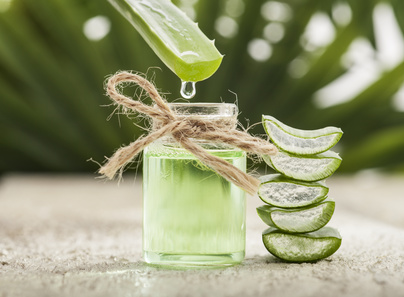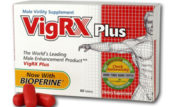 Santa brings more than festive cheer for many people. Winter and its sometimes-frigid temperatures is notorious for dry scalp and itchy skin. Throw a little psoriasis in for good measure and life can get miserable.
Santa brings more than festive cheer for many people. Winter and its sometimes-frigid temperatures is notorious for dry scalp and itchy skin. Throw a little psoriasis in for good measure and life can get miserable.
Psoriasis is a life-long skin condition of scaling and redness. We’re not talking about a mild dermatitis here; psoriasis is an aggressive skin disease in which cells quickly rise to the skin’s surface, within days rather than the average four weeks that most people experience. The skin then builds up in thick, red patches, called ‘plaques’ that can vary from a mild skin rash to full-on body inflammation.
Between two and three per cent of the population has psoriasis, with 10 to 15% of them having joint swelling, called psoriasis arthritis. That is an aggressive, albeit rare form of a skin disorder that makes life troubled, to say the least.
Psoriasis is most common in adults, though it can affect teens and children as well.
About Psoriasis
A doctor can usually diagnose psoriasis by looking at the patient’s skin or finger nails. Symptoms might be a small area of moderate to severe rash, in which skin is raised and red, with loose silvery coloring and scaling.
Severe psoriasis can make skin itchy and tender. People in this unfortunate category may have large patches of scaling that can join together and cover a large area like the back.
Admittedly there is much we don’t know about psoriasis and why it affects some people more than others. Our current understanding suggests it’s an issue of the immune system, with risk factors including:
Family History – Arguably the biggest risk factor, psoriasis appears to run in families, with at least 40% of patients having a family member with the disease.
Viral and Bacterial Infections – HIV patients are more likely to develop psoriasis than people whose immune systems are firing on all cylinders. Children and young adults with recurring infections are on high alert too, especially if they’ve had strep throat.
Stress – Chill out, friend – stress can weaken the immune system and schedule an unwanted psoriasis flare-up.
Obesity – Being overweight hurts your skin too, and with plaques that can develop in skin creases and folds.
Smoking – Risk and severity of psoriasis is higher in smokers. The more they smoke, the worse it can get – and they’re also at risk of developing the disease in the first place.
Like most skin conditions, symptoms can lay dormant and then flare up under certain conditions. Symptoms can be unique to each patient, but dry skin and hot or cold weather tend to be among the most common offenders.
How to Treat Psoriasis
Psoriasis stays for life. That means no cure – but it does mean you can alleviate symptoms of psoriasis with medication, natural remedies and understanding your triggers. Avoid those triggers, once you’ve identified them, and practice psoriasis skin care tips. These include:
Moisturize
Simple and effective. Moisturize (over and over) to reduce dry skin, redness, soreness and itching. Moisture helps your skin heal too, provided you do it often, especially in dry or cold weather.
You’ll need to choose a moisturizer to suit your skin type. Ointments are thicker, and better at locking in moisture, while lotions are thin and easier to apply and absorb. Creams are a good medium between ointments and lotions. Experiment – try several products until you find one that works. And if you’re concerned about parabens, try a natural moisturizer like Skinception Cold-Pressed Cosmetic Argan Oil.
Whichever product you choose, apply it the same way: gently pat it on after bathing and reapply as required throughout the day. Take a Daily Bath
Take a Daily Bath
This might seem counter-intuitive to people with dry skin, but a daily warm bath with mild soap can relieve itchy spots and encourage skin to exfoliate. You can add oatmeal, Epsom, Dead Sea salt or argan oil to the bath for even greater relief. Soak for 15 minutes and you’ll feel the difference.
The caveat here is to take a warm bath – not hot, which can deplete your skin of its natural oils. Avoid harsh soaps too, because they can irritate the skin and make psoriasis worse. Pat, don’t rub, your skin dry with a towel, after which apply your moisturizer of choice.
Get Some Sun
While the mechanism remains unclear, evidence suggests that ultraviolet light can reduce psoriasis lesions. Artificial light, like that from a lightbox during winter months could help, switching to sunlight in spring and summer.
Moderate UV exposure; aim for two or three times a week. Use sunscreen in summer, including on parts of the body without psoriasis. Speak with your doctor or dermatologist about UV therapy for psoriasis too, and follow up with ongoing checkups to make sure you’re staying safe in the sun.
Reduce Stress
Stress can trigger psoriasis. In fact, it’s not uncommon for a psoriasis patient to trace their first outbreak to a stressful event. Reading that could make you even more stressed, of course, but it highlights why it’s important to live with healthy stress management tips. A personal support network and regular social time might help as well.
You might also try yoga, meditation, guided imagery or other relaxation techniques. Be sure to eat a healthy, balanced diet too, and drink plenty of water.
Don’t Touch Abrasive Substances
Many a rosacea patient has suffered from wool. You can add lotions with alcohol, deodorant and even some laundry soaps to that list. Solutions? Opt for cotton-based fabrics rather than wool. Experiment with soap too – some patients find that gentle cleansers like Cetaphil are easier on the skin. Or try a soap with a moisturizer like Dove.
Don’t Smoke or Drink
The vices are no friends to your skin. Among other things, alcohol and smoking can both trigger psoriasis, and the combination of them can make psoriasis medications less effective – and in some cases – dangerous. Quit smoking and you may improve psoriasis. Even if you don’t, the many, many health benefits that come from breaking the habit will more than make up for it.
Quit smoking and you may improve psoriasis. Even if you don’t, the many, many health benefits that come from breaking the habit will more than make up for it.
Don’t Pick At Scabs
If you’ve read my article on how to get rid of a scar you know that scabbing is part of the healing process. The same principle applies here; don’t pick at psoriasis scabs, or you risk bacterial infection and making psoriasis that much worse. Try not to itch either. Take a warm bath and moisturize instead.
Natural Treatments For Psoriasis
You might also try natural treatments to reduce psoriasis. This may require trial and error – natural sunlight and ocean water might help some patients. Minerals and vitamins, or a combination of them might help others. Consider the following:
Aloe Vera – The cream that helps sunburns might reduce psoriasis. One study found topical aloe vera was more effective than a placebo. Don’t expect a miracle though because the benefit was minimal.
Fish Oil – This shows potential. Some evidence suggests that fish oil capsules with 1.8 to 3.6 grams of eicosapentaenoic acid (EPA) can help psoriasis-stricken skin.
Dead Sea salts – Along with other bath solutions like Epsom salt and oilated oatmeal, Dead Sea salts remove scaling and can reduce itching. Mix Dead Sea salts and related solutions in a warm bath as directed, then soak in it for 15 minutes. Moisturize immediately when you get out of the tub.
Cayenne – The ancients used cayenne pepper as a medicine for thousands of years. Modern evidence suggests they knew their stuff. Capsaicin is the active ingredient in cayenne peppers that makes them hot – and you’ll also find it in many pain relief gels and creams because it can relieve itching and skin lesions from psoriasis. Just be sure to wash your hands immediately after using capsaicin and don’t get it in your eyes or mouth.
Finally, aim for a balanced diet.
While you’ll find many articles that claim diet therapies can help psoriasis, they show little help for long-term symptoms. Your best strategy here is to follow the fundamentals; eat healthy, with plenty of greens and vegetables. Olive and canola oil are good, and fruits are gold – aim to eat all the colors of the rainbow. Fish, poultry, beans and nuts rank among the best proteins. Red meat ain’t that healthy.




